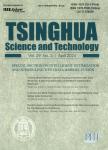More Bang for Your Buck:Boosting Performance with Capped Power Consumption
More Bang for Your Buck: Boosting Performance with Capped Power Consumption作者机构:College of ComputerNational University of Defense TechnologyChangsha 410073China College of ComputerUniversity of LeedsLondon LS29JTUK School of Science and EngineeringState University of New YorkNew YorkNY 12561USA
出 版 物:《Tsinghua Science and Technology》 (清华大学学报(自然科学版(英文版))
年 卷 期:2021年第26卷第3期
页 面:370-383页
核心收录:
学科分类:08[工学] 081201[工学-计算机系统结构] 0812[工学-计算机科学与技术(可授工学、理学学位)]
基 金:supported in part by the Advanced Research Project of China(No.31511010203) the Research Program of NUDT(No.ZK18-03-10)
主 题:energy efficiency high-performance computing performance boost power control processor frequency scaling
摘 要:Achieving faster performance without increasing power and energy consumption for computing systems is an outstanding *** paper develops a novel resource allocation scheme for memory-bound applications running on High-Performance Computing(HPC)clusters,aiming to improve application performance without breaching peak power constraints and total energy *** scheme estimates how the number of processor cores and CPU frequency setting affects the application *** then uses the estimate to provide additional compute nodes to memory-bound applications if it is profitable to do *** implement and apply our algorithm to 12 representative benchmarks from the NAS parallel benchmark and HPC Challenge(HPCC)benchmark suites and evaluate it on a representative HPC *** results show that our approach can effectively mitigate memory contention to improve application performance,and it achieves this without significantly increasing the peak power and overall energy *** approach obtains on average 12.69%performance improvement over the default resource allocation strategy,but uses 7.06%less total power,which translates into 17.77%energy savings.



